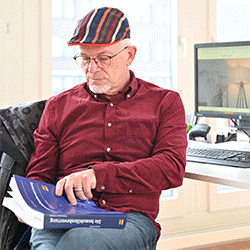In the case of testators who did not make a will or an inheritance contract during their lifetime, the law determines the order of succession. Most inheritance cases in Germany fall under this category. Spouses or registered partners and children are primarily taken into account. Other relatives such as nieces or nephews inherit assets according to their degree of kinship. Parents-in-law or a brother-in-law are not related.
The German Civil Code (BGB) distinguishes between different levels of inheritance.
The heirs of the first order (Section 1924 BGB) include the deceased's children and grandchildren. Representatives of the second order (Section 1925 BGB) are the deceased's parents, siblings, nieces and nephews. This group also includes the deceased's divorced parents. The third order (Section 1926 BGB) includes the deceased's grandparents, uncles and aunts, cousins. As long as there is at least one representative of the first order as an heir, there are no representatives of the second order. The same applies between the second and third order.
According to this statutory inheritance law, the surviving partner always receives a quarter of the estate in addition to the children, even if there is only one child. If there are only relatives of the second order apart from the widower, the surviving spouse inherits half. In most cases, however, a marriage is organised as a community of accrued gains. In this case, the remaining spouse's share of the estate is increased by a quarter: he or she then inherits half. His or her children's share is reduced accordingly.
If, on the other hand, there is an effective will or contract of inheritance, this is referred to as an intended succession. If testators choose this route, they can appoint any person as heir.
Are you the heir to a property according to the legal succession and are now considering what to do with your inheritance? We will be happy to advise you.
Photo: Richard Villalo









